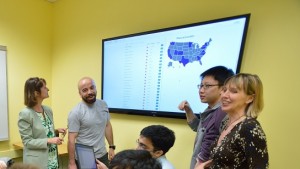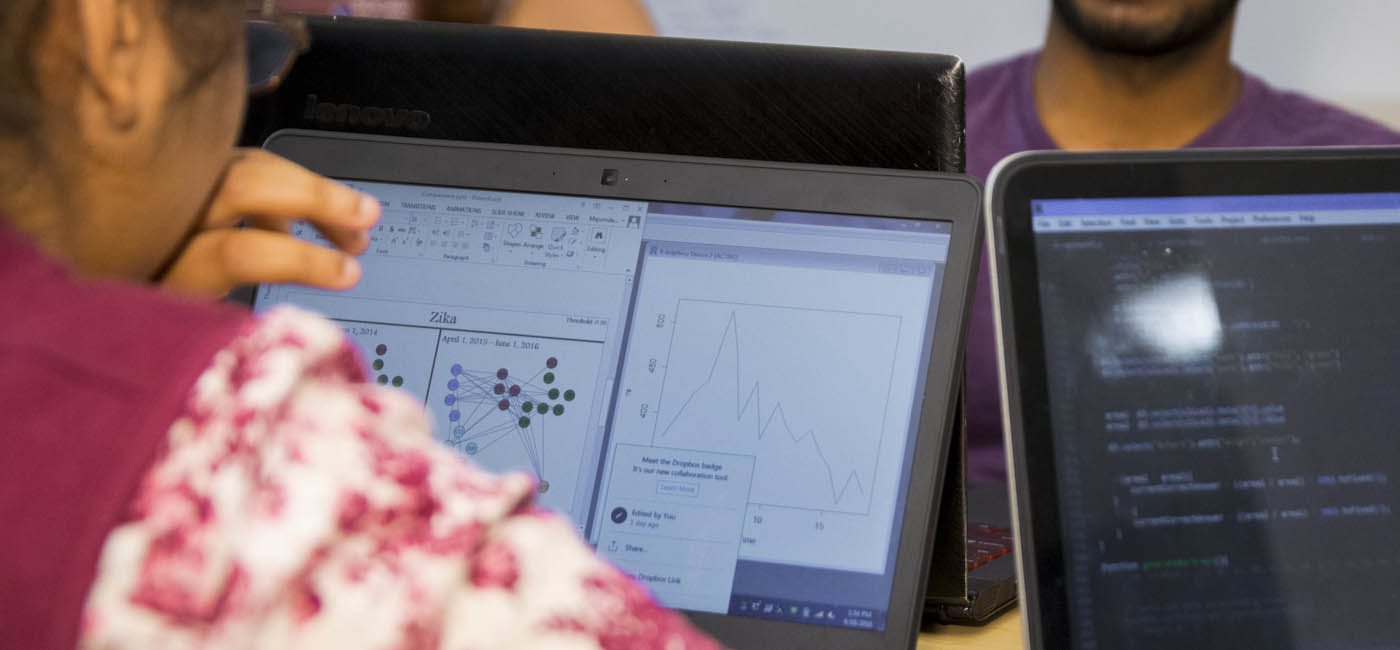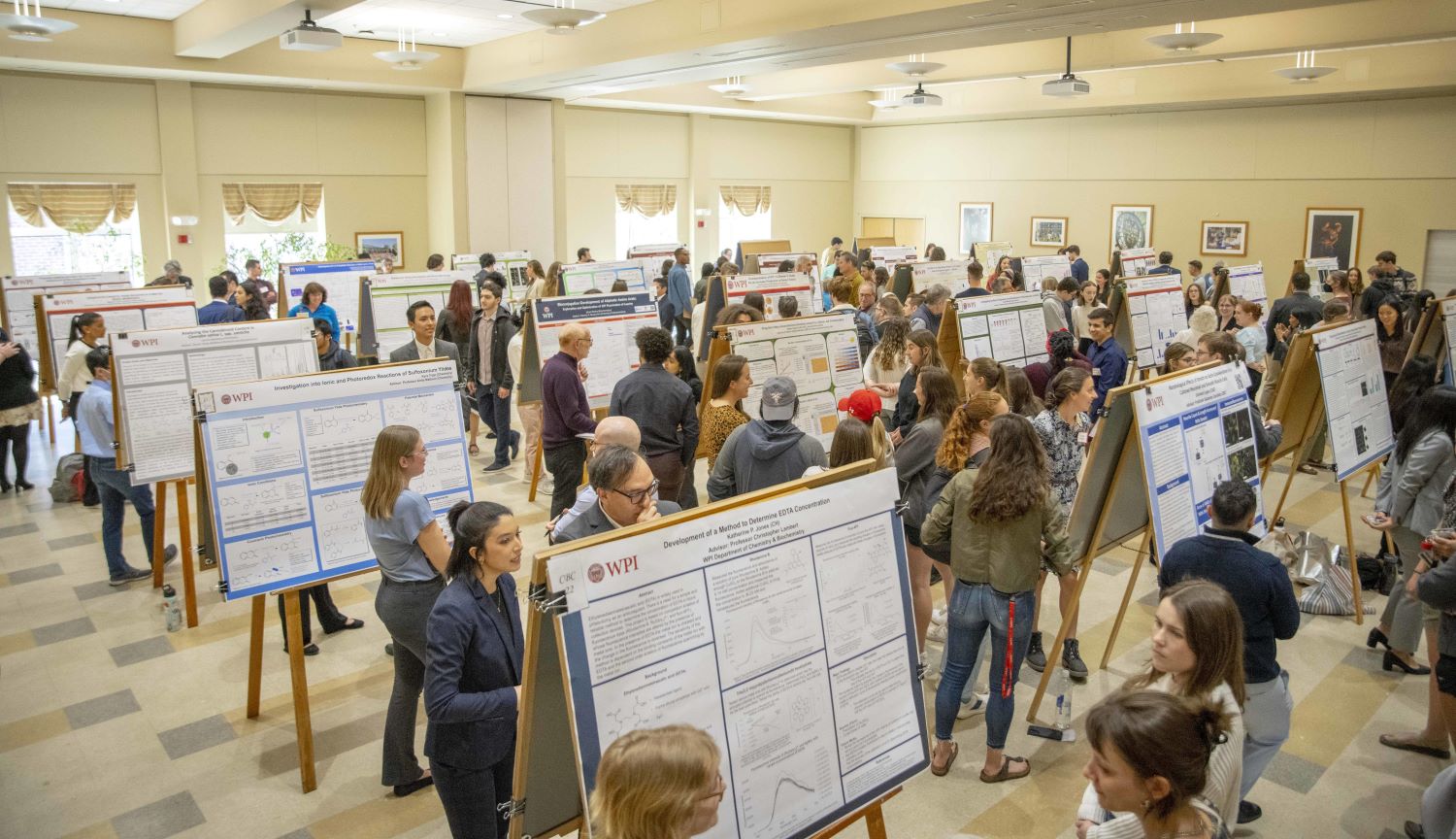While the MATTERS interface appears seamless—users can easily select different sets of data and view results in useful graphs and maps—it relies on a robust back end driven by complex rules, powerful data integration tools, and an understanding of business economics. However, as Rundensteiner notes, the eager team of students who came together to create the system were more than up for the challenge.
“Due to the potential major impact of this project, and the state-of-the-art technologies that students could use firsthand, I’ve been able to recruit a continuous string of extremely talented undergraduate and graduate students,” says Rundensteiner. “They have shown a deep understanding of the complexity of the challenges involved in building this data analytics technology.”
One key issue the team faced was the big data problem of data variety—the need to extract multitudes of data from diverse sources, such as state population data from US Census Bureau, employment information from the Bureau of Labor Statistics and education statistics from the Institute of Education Sciences. Once extracted, the data also presented in a number of different formats, structures, and technologies, such as Excel, PDF, and other query-based systems.
“We needed to use a number of different techniques to obtain the data,” says Ramoza Ahsan (Fulbright scholar) and Rodica Neamtu, WPI graduate students who helped to identify this problem. “And once you get the data, that data may look very different. One site may present something as a dollar amount, another may present it as a percentage. Or one site may spell the same state in many different ways. We needed to be able to transfer everything to one manageable format.”
 At the same time, the team needed to develop easy-to-use, yet insightful, visual displays and interaction paradigms to allow policy makers to compare and contrast data. This step was undertaken by a team of WPI undergraduates as part of their Interactive Qualifying Project (IQP). The students not only researched and built an integrated dashboard, but also used rankings information to identify important metrics and conducted a usability study.
At the same time, the team needed to develop easy-to-use, yet insightful, visual displays and interaction paradigms to allow policy makers to compare and contrast data. This step was undertaken by a team of WPI undergraduates as part of their Interactive Qualifying Project (IQP). The students not only researched and built an integrated dashboard, but also used rankings information to identify important metrics and conducted a usability study.
COMPLEX TECHNOLOGY CHALLENGE
“This project is so meaningful to WPI faculty and students because it presents a complex technology challenge,” says Stephen Flavin, dean of Academic and Corporate Development at WPI, and a member of the Massachusetts High Tech Council. “This reporting dashboard will be used to make decisions that will help the state’s competitiveness. This project goes back to one of the tenets of WPI, which is to solve real-world problems.”
Of course, the ultimate test for MATTERS will be how well MHTC members can use it to identify key trends and empower data-driven decision making and policies that spur Massachusetts’ competitiveness, talent development, and job creation.
UNDERSTANDING TALENT GAPS
“This system will help technology companies in Massachusetts and beyond to understand where the talent gaps are and where growing demand is located,” says Christopher Anderson, president of the MHTC. “WPI’s technology expertise and guidance have enabled us to make this vision a reality.”
Caitlin Kuhlman, a PhD student in computer science at WPI, agrees and says she looks forward to seeing the product put to use to solve real-world challenges.
“A primary reason I came to WPI was for data analytics and machine learning,” says Kuhlman, whose research is being funded by the U.S. Army Natick Soldier System via an ORISE STEM fellowship. “To immediately have an opportunity to be involved in this project is particularly gratifying.”
– BY JENNIFER WYGLINSKI, KELLY BISHOP AND ANDY BARON
 Nearly two dozen undergraduate, master’s, and PhD students in WPI’s Data Science Program collaborated over the past 14 months to develop a novel data analytics system that could help shape economic policy in Massachusetts.
Nearly two dozen undergraduate, master’s, and PhD students in WPI’s Data Science Program collaborated over the past 14 months to develop a novel data analytics system that could help shape economic policy in Massachusetts.


 At the same time, the team needed to develop easy-to-use, yet insightful, visual displays and interaction paradigms to allow policy makers to compare and contrast data. This step was undertaken by a team of WPI undergraduates as part of their Interactive Qualifying Project (IQP). The students not only researched and built an integrated dashboard, but also used rankings information to identify important metrics and conducted a usability study.
At the same time, the team needed to develop easy-to-use, yet insightful, visual displays and interaction paradigms to allow policy makers to compare and contrast data. This step was undertaken by a team of WPI undergraduates as part of their Interactive Qualifying Project (IQP). The students not only researched and built an integrated dashboard, but also used rankings information to identify important metrics and conducted a usability study.

